Just like many other times, this time too, I was crying. Crying because I had gotten ready for the occasion, but we might have to cancel the plan. Crying because I was anxiously waiting for my mother to get her wages and come home quickly. Crying because we didn’t have money.
It was past mid-afternoon, and we had to go to our uncle’s place for a festival, where all my other cousins and relatives would be there. Because of the shortage of money, the plan was to go by bus which is relatively cheaper than auto-rickshaw, and to borrow some money from my uncle for a trip back home. My mother is a tailor who stitches frocks. Her income was dependent on how much she could stitch in a week. And that week, due to a delay in her work completion, my mother did not get her wages, so she started counting all the coins she had to see whether it would buy bus tickets for all four of us: my mother and three children. It turned out that there was a shortage of just Rs 10. Then she started checking all the places where she keeps money: the drawer, another purse, in a small tiffin, but to no avail. I felt dejected that we could not even afford bus tickets for ourselves. In the end, we did manage to go to my uncle’s place, borrowing money from our neighbor, Anita kaku, enough to go by auto-rickshaw.
Poverty is when individuals are not able to meet basic human needs. In India, around 30% of the population has less than $1.25 available per day and is extremely poor. Overall, more than 800 million people are poor. Meaning, out of 1.2 billion people in India, 30% cannot meet very few basic human needs. Apart from 30%, many others can meet quite a few basic human needs but not all.
It was always evening when my mother would tell me the stories of her childhood. Even some of the events from my childhood that I remember are from evenings when the sky has just begun to turn violet from the blue. She would never tell the whole story together, instead it would always be one part at a time. Some revolved around her childhood, some right after her marriage, others were that of after I was born. But they all revolved around the financial constraints at home.
Every time she told me the story, I could imagine it more clearly. In the beginning, those were just words. Words meant to be heard but not remembered. But slowly, I could feel the emotions hanging there in the air, and then I could see an image of a lonely woman standing. I could see the far-stretched road ahead of her, with potholes on every step. Every time I heard the story, the blurred picture got clearer.
“When I was young, the work that my mother did was inconsistent. She got work sometimes. Sometimes she didn’t. When she did get work, she would have to sit for hours to complete the work. By the time she got her work done, my siblings and I would be sitting hungry for her to get back with some money to buy food. By the time she would go to the “Malak” to get wages and drop her work, it would be mid-afternoon. By then, all the shops would be closed, so we had to look for any shop that might be open and then buy some ration with Rs. 25 that she would get. And then start cooking for the day.”
This story always made me feel lucky. No, we didn’t have money, but there were rarely days when we had to stay hungry or sleep hungry. My mother always took care of us, making sure we had food.
Also read: How South Asian Women With Vitiligo Have It Harder
Vitiligo and Marriage
In my early childhood, there were often times when by the end of the week, having even a single rupee saved would be difficult. My mother got weekly wages every Saturday. Saturdays were the best. If we were lucky, we would have fruits in the house on Saturdays or Sundays. But as the week came to an end, it would get tricky. By Wednesdays, we would start looking for a 10 rupee note that we fervently hoped would have been left in some random purse. Sometimes we would have to borrow from others around and other times make do with dal and rice in the house already. These were the times she would tell us about her regret of not speaking up and getting married to a person who didn’t help her condition but worsened it.
In most communities around the world, there is pressure on women to get married. As a woman starts nearing the age of 25, the pressure of getting married builds up even faster. Women are often forced and pressured to marry below the age of 30. They are told, “Your biological clock is ticking,” “No one will marry you!”, or “You will always remain alone!” In India, the girls are often looked at as liabilities who have to be married off. But those women who aspire to be independent and live their lives independently are labeled as rebels. The current society has set timelines for every stage of women’s life. Leave your dreams and get married before it is too late, have kids before it is too late, etc.
“It was a small dot on my middle finger. A white dot, though. On top of that, I was 22 years old. All my sisters were married at the age of 16. I had already lived extra six years at my parents’ house. I had to leave, not by having my own house and working independently, but by getting married. I was soon going to become a liability, an already old daughter with white spots on her. Then, I got a proposal. I had gotten many already, but they would leave as they got to know I had a white dot. With this proposal that I got, the groom’s family was okay with me having a spot. But something was fishy. They wanted me to get married within a month. We did not know anything about the groom. How could we agree? But some relatives persuade my parents, ‘She is already old. No one would agree to marry her. And she has a white spot. Just get her married.’ And I got married.”
Vitiligo is a skin condition in which white patches appear on the skin due to a lack of melanin. However, it is often confused with skin diseases like skin cancer or albinism. In India, people affected by vitiligo often face discrimination due to the stigma around it. As the white patches are easily visible on the dark skin, it is known as ‘safed daag’ or white spots. Since women are often seen as objects, their external appearance is heavily taken into consideration and they find it difficult to get married as they have white spots, which are considered contagious. Vitiligo is also deemed the result of one’s past life’s sins. While vitiligo does not cause any physical harm in itself, those with the skin condition experience psychological distress because of being discriminated against.
As the white patches are easily visible on the dark skin, it is known as ‘safed daag’ or white spots. Since women are often seen as objects, their external appearance is heavily taken into consideration and they find it difficult to get married as they have white spots, which are considered contagious. Vitiligo is also deemed the result of one’s past life’s sins. While vitiligo does not cause any physical harm in itself, those with the skin condition experience psychological distress because of being discriminated against.
Working Women
As a child, my mother could not change her family’s financial situation. But as an adult, when she could, society forbade her. After her marriage, she was asked to live with her husband, whichever place that might be. But he never stayed with her. He would take her to some new place, leave her there, and go back to his own family, leaving her in worse conditions.
Whenever the topic of him being irresponsible came up, she would remind me of the time she was in the village.
“Even before you were born, I would have to go anyplace he would ask me. My family members knew his nature, but they assumed that staying somewhere else away from the relatives would make him more responsible. They were wrong. I went with him to a small village known as Chittapur in Karnataka. I went to another city, Ulhasnagar in Thane. And this one time, I went to Solapur. But after dropping me at a small hut located near the jungle, he went away to his hometown. I was alone with your one-year-old sister, hardly knew anyone around, and had no source of money. And I just had one small tiffin that I had packed for the train journey. For one day, I had food from the tiffin. The next day, I needed food and your sister needed milk, but there was none. Then I decided that I will at least go to my sister and get some food for the child, if not for me. I went there in the morning but could not gather the courage to ask for food explicitly. I just sat there, acting as I came to visit them. Then, it was their breakfast time, and they offered it to me. As per the unspoken rule, I first denied, and on persuasion, had some food and fed your sister. After that, I went back to the hut, sat for some time. There was again nothing for me to do, but then your sister started crying again. Being a child, she needed food every hour or two. All I could do was coax her to stay quiet. Soon it was lunchtime. I was also growing hungry. I decided to go back to my sister again during lunchtime, hoping that I would be offered food, but act as if I went just to spend some time with her. So I went to her and got food to eat. But I knew I could not continue this. How many times could I go back to her? Then I decided to borrow some money from her and came back to my mother’s house.”
Everyone likes more income in the houses, more money to spend on necessities, more money to spend on wants. But, often, many Indian families are not willing to let the women do the housework outside. Why? All the household works are designated to women. Child care, caring for the elderly, cooking, and cleaning. Even if a woman was “allowed” to work, she still has to take care of household chores and her job. Men are too tired from the entire day’s work at their jobs, but apparently, not women. Along with that, working women have to come home before nightfall and give up on their jobs if household chores take a secondary place. But they are always expected to prioritize the household work first. If a day job takes up a higher priority, society would often start taunting the woman. Thus, instead of burdening themselves more, many at a time, women avoid taking up any job at all.
Even if a woman was “allowed” to work, she still has to take care of household chores and her job. Men are too tired from the entire day’s work at their jobs, but apparently, not women. Along with that, working women have to come home before nightfall and give up on their jobs if household chores take a secondary place. But they are always expected to prioritize the household work first. If a day job takes up a higher priority, society would often start taunting the woman. Thus, instead of burdening themselves more, many at a time, women avoid taking up any job at all.
In the evenings, when I would just be sitting, she would come and tell me how understanding I am. These were often the times when she was free and not working. Or times when I would have helped her out or stopped my other siblings from fighting.
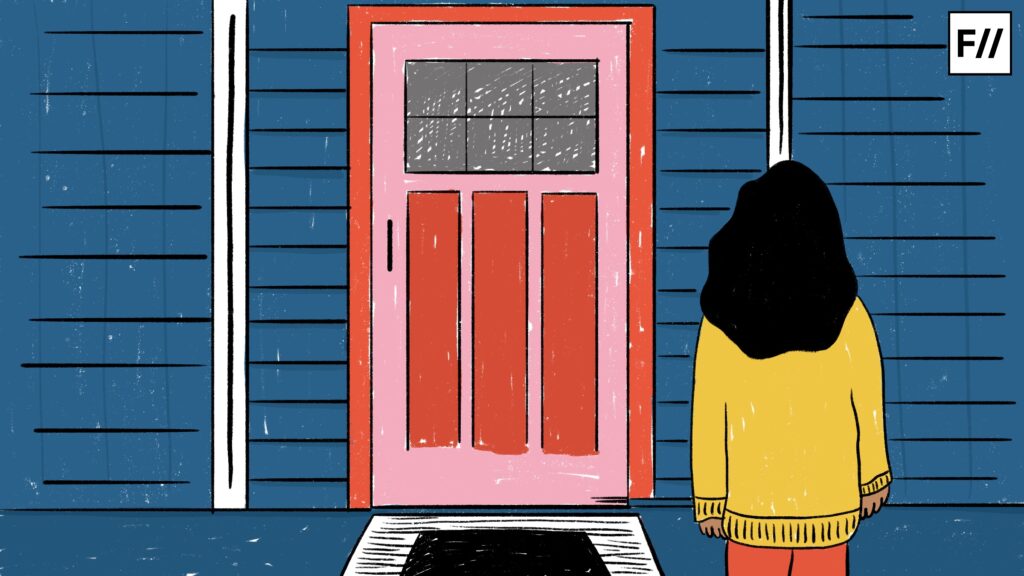
Also read: Vitiligo: How A Person’s Identity Is Reduced To A Skin Condition
She would tell me:
“I felt terrible for making a one-year-old child walk the whole one-kilometer road. But I didn’t have any other option.
You were just a year and a few months old, and your sister was a month old. Your cousin had come over to stay with me. The conditions were worsening, with minimal ration left. Your father had already left and gone to the village without caring about me once. Then I decided that I will go to my mother’s place. I searched the whole house but didn’t get a single rupee. Your 12-year-old cousin had Rs.10, and she offered me that. So we packed the bags and left the house. We took the bus, but we didn’t have enough money. We had to get down half the way. There were two heavy bags and two children to carry. She took the heaviest bag, I took your one-month-old sister and one bag, and you, I made you walk.
Slowly, we started walking back home, but a man saw me making you walk and commented, ‘Why are you making such a young child walk? Don’t you understand? Pick her up.’ What could I say to him? I acted as if I was picking you, and as soon as he had passed by, I made you walk again. This would not have happened if I had money, but I didn’t. But just a year old, and you were understanding, even then. You didn’t cry, not even once for the whole walk.”
Initially, when I used to hear this story, I used to feel proud of myself. Proud that I was a good child doing things without complaining. It didn’t last. Not for long. As I understood the situation in which I had to be a good child, I felt sad. And soon after that, I saw myself giving up things just when I was just seven. I had gone to the market with my older sister. There I saw a machine which had a place to insert a rupee one coin and it would produce a candy! While my sister took it for herself, but I didn’t take it. I desperately wanted that. I came home and cried, not because I didn’t get it, but because I let it go because I knew a rupee was also crucial as the week ended.
It was never easy listening to these stories or living through such times. There have been times where we didn’t have a single rupee in the house. These were rare, but they were still there. Once, I remember when we hardly had any money and no ration left. We were just a day away from Saturday for her to get her weekly wage. It was evening, and unlike many other times, the sky had turned entirely orange instead of violet. My mother gave me two rupees and asked me to get khari. I went to a bakery, where the owner always gave me one khari extra. I came home with the three kharis wrapped in a piece of paper. That evening we had chai and one khari each. That is all I remember, no food, but a sad orange evening.
Another time, we were short of money, as usual, and we had to attend the weddings of two relatives, back to back. The first day we went to the marriage, walking 1 KM to save money from the auto-rickshaw expenditure. As per the custom, we packed Rs 51 in an envelope to give as a token for the bride and groom. The next day, we again went to the second relative’s marriage, walking, and attended the wedding. Before leaving the wedding, we had to give them the Rs. 51 envelope. But my mother had a hushed conversation with the 13 year old me. “Should we give the envelope to them at all? Because then there will be no money left for us.” In the end, we decided not to give them. Then we came back home, walking, and decided to open up the envelope. I don’t remember who opened the envelope, but whoever it was, tore the envelope in half, tearing the Rs 50 note along with it.
Every time we had financial constraints at home, I would cry. I did not cry because I missed a chance to go out and meet my cousins or because I did not get the candy I longed for. I cried because I felt ashamed and angry for not being able to afford the things that I wanted.
But why could I not afford the things I wanted? They were not impossible to get. Many people could afford them, but not me. It’s because we always had financial problems at home. But why? It was not because she didn’t have the skills to earn money. But she had to endure financial constraints because she was an independent woman and a single mother of three daughters with white spots over her body. And someone had decided to do what was best for her children rather than being in a toxic marriage. Intersectionality plays a vital role in the struggles of each person. My mother is a single, earning mother with vitiligo, living in a patriarchal society.
Sakshi Barad is a 12th-grade student studying Humanities at Avasara Academy. For the past 6 years, writing has been Sakshi’s hobby, and she has been writing poems and short stories to express herself. Sakshi wants to continue writing and bringing out stories on poverty and inequalities. Her pastime hobby is reading. The God of the Small Things by Arundhati Roy is one of her favorite books. She believes that education is the key to initiating any change. Her goal is to bring change to the world through promoting holistic education in India. You can find her on Facebook.
Featured image source: istockphoto
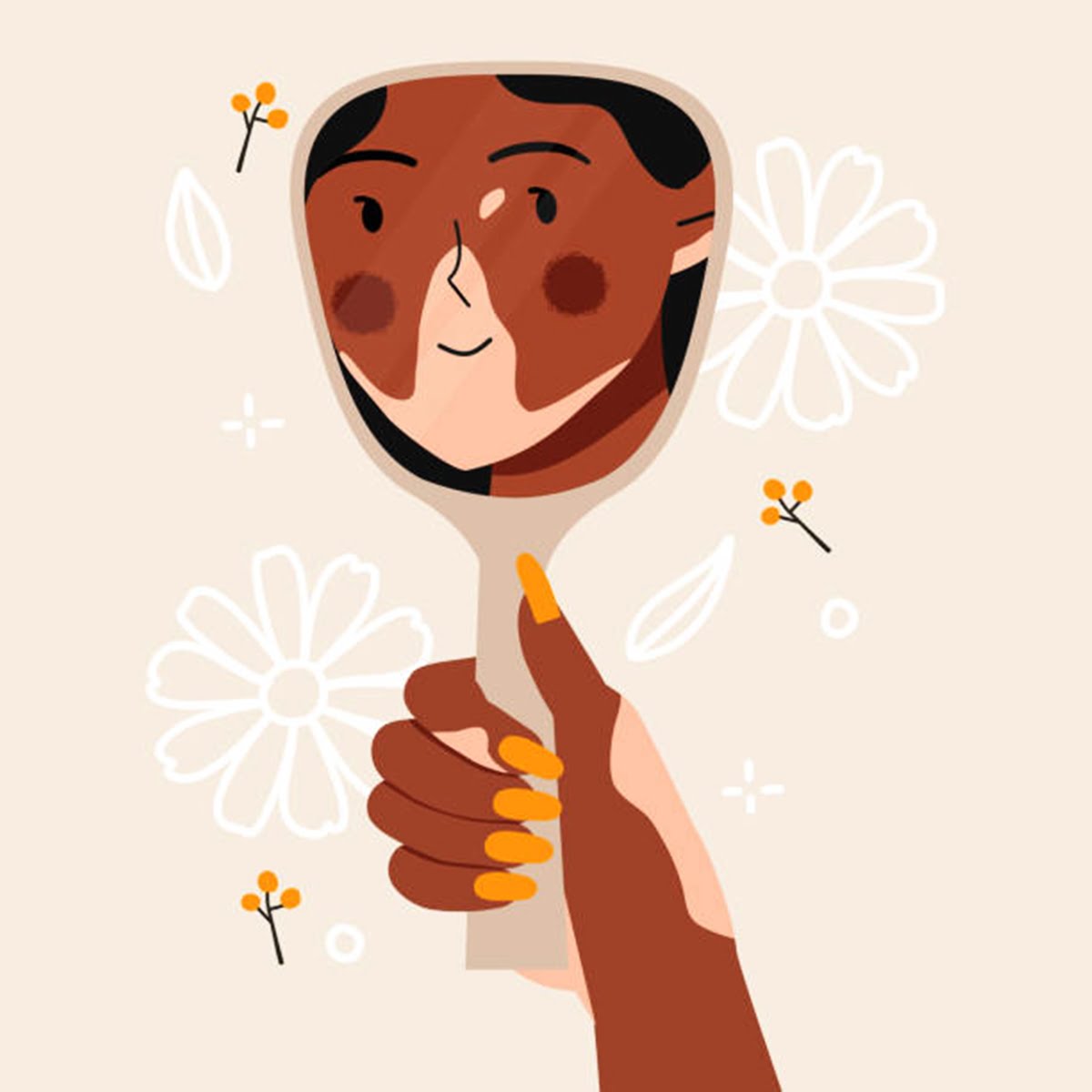
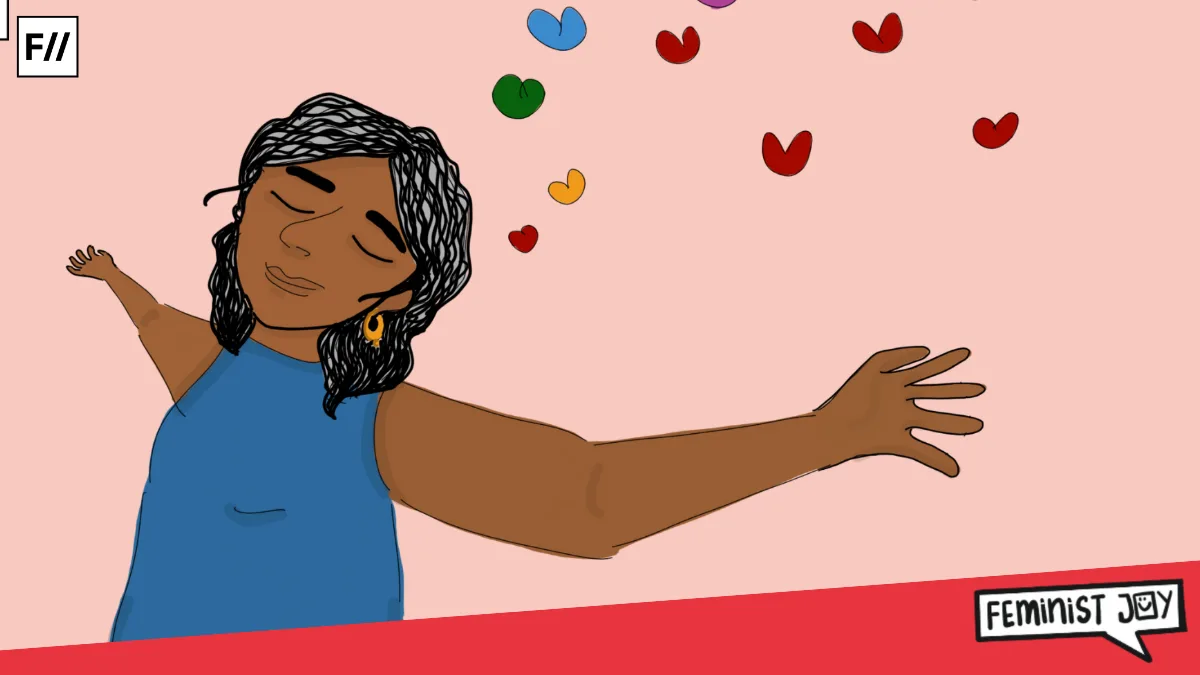
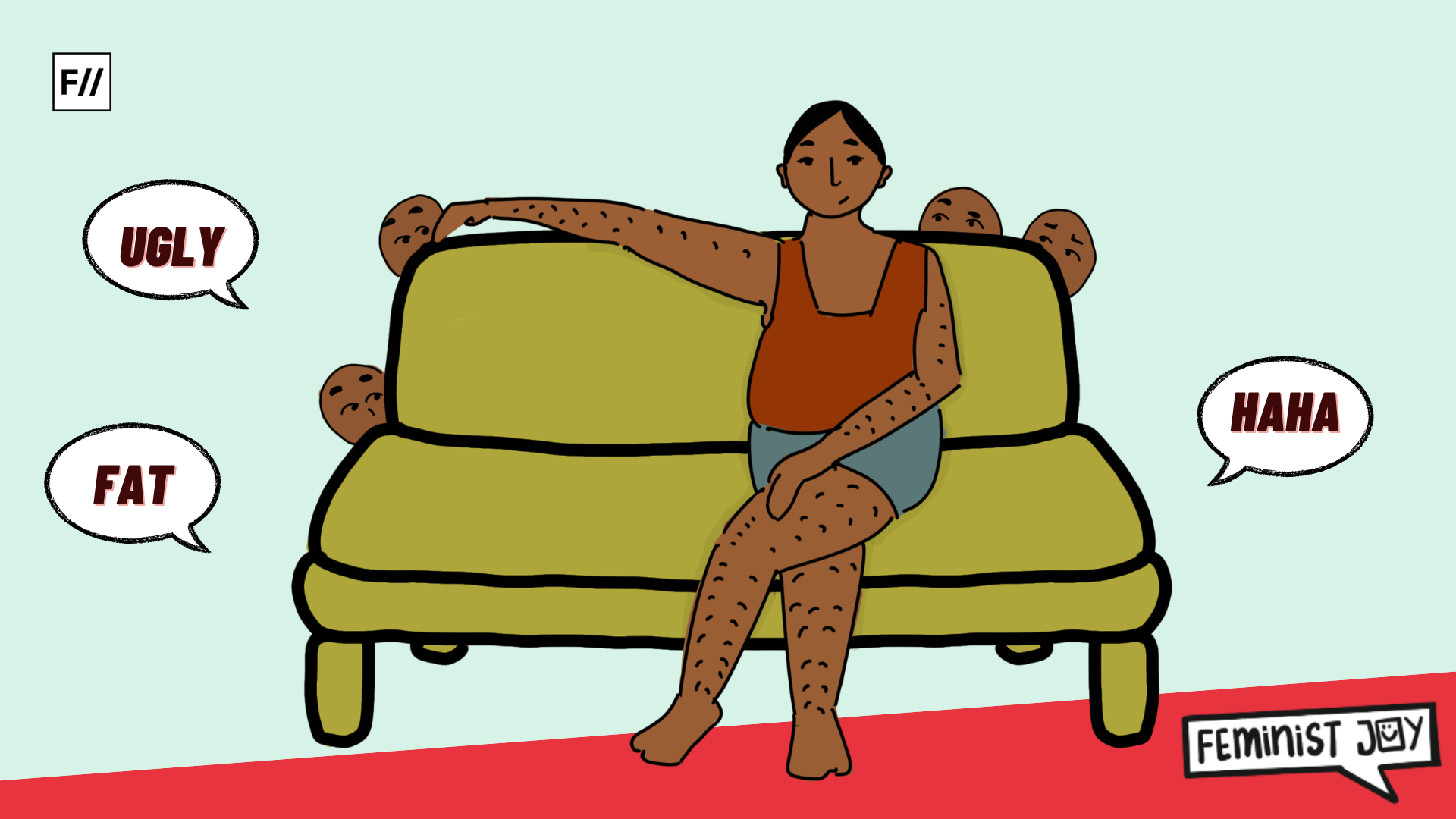
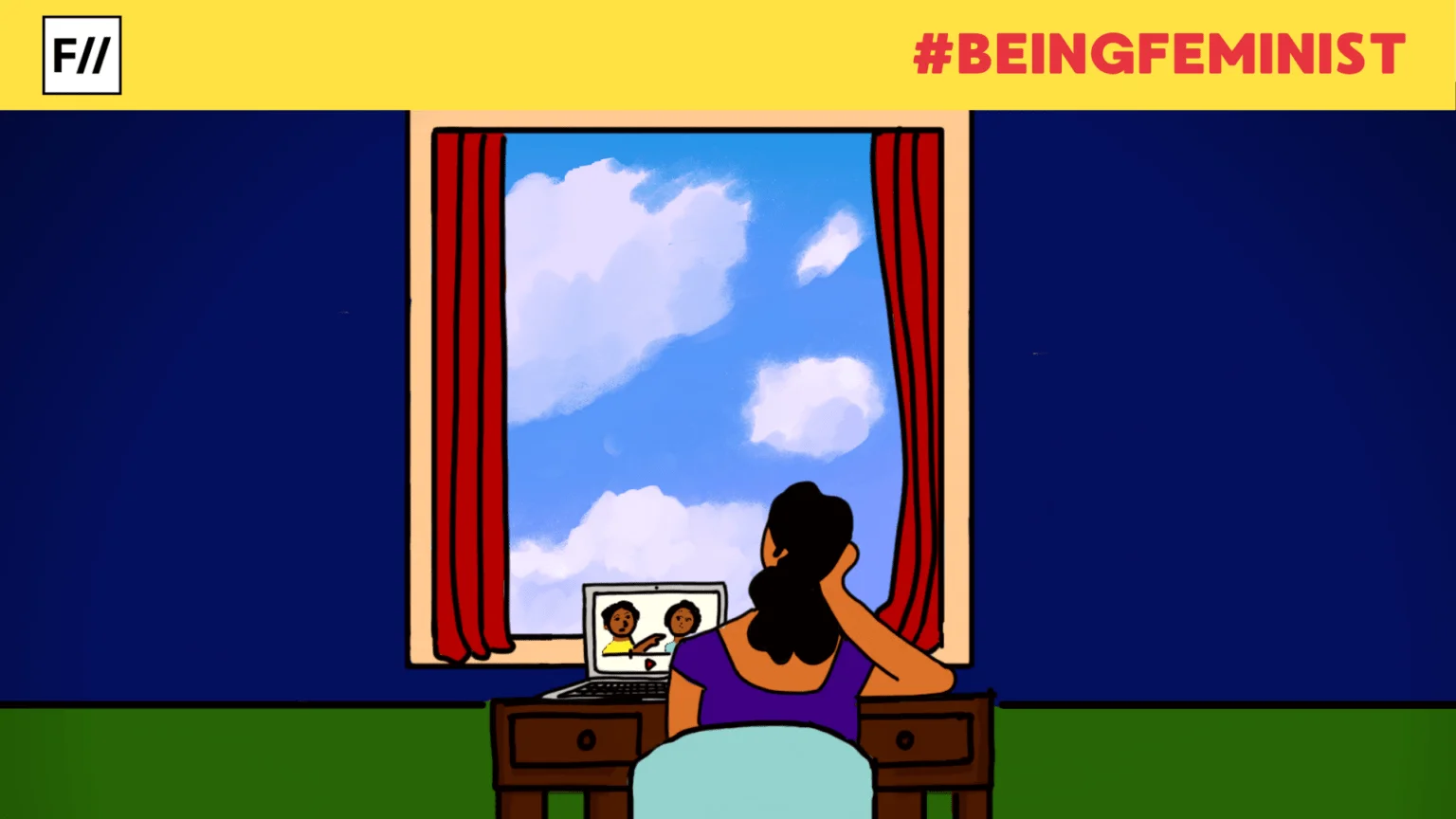

Sis.. I usually don’t comment but this time I just couldn’t stop myself.
So proud of your mother, you and your sisters. I mean seriously. It’s not uncommon for husbands and fathers to be so irresponsible and neglectful.
Though you wrote about your mother, but I’d like to take a moment to tell you that EVEN YOU HAVE FOUGHT AGAINST THE PATRIARCHY.
Being a daughter of an absent father is definitely very painful and it requires sheer determination and strength to be in the position you are.
All of you women are such huge inspirations. May God bless you.
Dear Sakshi,
You began the piece telling us you were crying and by the time I reached the end I also had tears in my eyes. Like your mother I also have vitiligo and understand how difficult it is to navigate around it in a patriarchal society. It was my good fortune that living outside of South Asia it has been a little easier and my family has supported me, however, I still continue to face adversity daily. I salute your mothers struggle and yours too. It is clear from your writing that you share your mothers resilience and I am excited to read more of your writing. Arundhati Roy’s The God of Small Things is also my favourite novel!
I wish you the best with everything!
Warmly,
Nikhat 🙂
All I can say is, I am proud of you and stay strong.
Incredibly proud of the person that you are and the courage that inspires <3
Extremely touched and inspired by the power you hold, by the honesty and grit in this piece.
I have no words.. Just keep it up!! Your awesome work 🙂